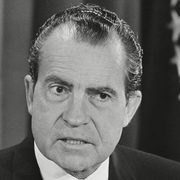|
Ramms+ein posted:http://www.atimes.com/atimes/Middle_East/MD02Ak01.html I love the term "humanitarian imperialism"
|
|
|
|

|
| # ? May 22, 2024 03:45 |
|
Vir posted:That's might be how it would have worked if not UNSCR 1973 had been passed, but 1973 gives wider opportunities for shipping arms to the rebels, as noted earlier (the "notwithstanding" bit). Only in the broadest interpretation of what preventing civilian deaths means.
|
|
|
|
NATO are in a pretty good position to interpret it however they want
|
|
|
|
t3ch3 posted:Only in the broadest interpretation of what preventing civilian deaths means. e: the libya17feb website has a translated interview with a guy who says he's a fighter from Misratah: http://www.libyafeb17.com/2011/04/translated-comprehensive-update-from-the-city-of-misratah-today/ summary: - They captured some cars with weapons in them. - G tanks were bombed in the south and west of the city by the NATO forces - Qatari ship arrived with aid supplies, and Turkish ship evacuated 400 patients. - Still some G "snipers" inside the city, but seem to be on the defensive. Had to leave because they couldn't take the stench of their fallen, the guy claims. Vir fucked around with this message at 00:16 on Apr 3, 2011 |
|
|
|
Vir posted:It's pretty explicit in allowing the arms embargo to be bypassed, saying that the section about the embargo can be ignored, but yes it's only allowed as long as it prevents civilian deaths. Anti-tank and anti-air weapons might be allowed, but probably not flame throwers and anti-personnel mines. I'm still intrigued by why flamethrowers. Granted, I'm sure incendiary and thermobaric rocket weapons are off-limits, but flamethrowers are dual-use. They could be to set controlled burns and clear out hidden snakes of the no-legged variety. poo poo, flamethrowers are legal to own in the United States by civilians, but aren't in Libya?
|
|
|
|
I used them as an example because they're not really what you'd consider an ideal defensive and discriminate weapon in an urban environment.
|
|
|
|
Vir posted:I used them as an example because they're not really what you'd consider an ideal defensive and discriminate weapon in an urban environment. True, but they're likely easier to construct than any other weapon. Use, on the other hand, is still pretty difficult. There's a few of reasons why they're no longer fielded, having largely been replaced by rocket "flamethrowers" with the last couple of decades, and "hard to use" is one of them.
|
|
|
|
Young Freud posted:True, but they're likely easier to construct than any other weapon. Use, on the other hand, is still pretty difficult. There's a few of reasons why they're no longer fielded, having largely been replaced by rocket "flamethrowers" with the last couple of decades, and "hard to use" is one of them. I don't think we need to read "Brega burns to ground due to rebel misuse of flamethrowers"
|
|
|
|
Or "One rebel is still in hospital after accidentally flame-throwing himself in the torso"
|
|
|
|
Pedrophile posted:I don't think we need to read "Brega burns to ground due to rebel misuse of flamethrowers" You scoff, but you'll sure feel stupid when Gadaffi releases his elite killer bee swarms on them.
|
|
|
|
Concerned Citizen posted:Even if the rebels win (and this will not an inevitability since they are still outgunned 10-to-1 according to Gates), the challenges facing them in trying to actually establish a successful government are daunting. Here's the thing: I might agree with some of your reasoning. We don't know what's going to happen. We don't exactly know all the actors. There's tons to be worried about. But ultimately, its very hard to take you seriously when you say statements like "Historically, that has brought out some really atrocious things, like child soldiers, mass rapes, genocide, etc. Gaddafi winning would be vastly preferable to that outcome." There are documented cases of him going to populated areas and destroying them systematically. He spouts off about cleansing rebel areas. Ghaddafi is offering the worst case scenario, more than any other despot in the region. And to not recognize that points to a fundamental inability to recognize current events.
|
|
|
|
Shageletic posted:Here's the thing: I might agree with some of your reasoning. We don't know what's going to happen. We don't exactly know all the actors. There's tons to be worried about. But ultimately, its very hard to take you seriously when you say statements like "Historically, that has brought out some really atrocious things, like child soldiers, mass rapes, genocide, etc. Gaddafi winning would be vastly preferable to that outcome." Has CQ introduced "child soldiers, mass rapes, genocide, etc..." to Libya? I don't think you fully understand the meaning of worst case scenario.
|
|
|
|
http://online.wsj.com/article/SB10001424052748703712504576237042432212406.htmlquote:DARNA, Libya—Two former Afghan Mujahedeen and a six-year detainee at Guantanamo Bay have stepped to the fore of this city's military campaign, training new recruits for the front and to protect the city from infiltrators loyal to Col. Moammar Gadhafi.
|
|
|
|
quote:Among his followers, Mr. Hasady has the reputation of a trained warrior who stood fearlessly at the front ranks of young protesters during the first days of the uprising. [cough] So, who's up for more twitter rumors? quote:LibyanDictator" #Misrata's elected representatives arrived in #Benghazi a few days ago, now official members of the Libyan NTC. #Libya #Feb17 Yes, but who elected them? In Syria quote:Seleucid: Hmmm RT @edwardedark online activists in #Syria call for a nationwide general strike on Wednesday 6th of April. I would put little faith in that. In Yemen it looks like there's attempts to push Saleh into handing over power to a deputy so that actual negotiations can occur.
|
|
|
|
farraday posted:[cough] Yeah the Mujahedeen was pretty pro-US in Afghanistan too when they were fighting soviets.
|
|
|
|
t3ch3 posted:Yeah the Mujahedeen was pretty pro-US in Afghanistan too when they were fighting soviets. So, a small aspect of this focused on one city is the exact same? Libya, which has a population one fourth as large and concentrated in a fairly small band along the coast is the same as Afghanistan? The comparison is absurd on its face and making it is either clutching at straws or clutching your pearls, I can't decide between the two, but clutching is definitely involved. The sheer amount of deterministic thinking to even imply what you're suggesting is boggling.
|
|
|
|
Alright man, I'm sure that your Twitter posts about how Gaddafi's forces are in imminent collapse are better representations of the situation on the ground and NATO arms shipments to rebel forces commanded by the Mujahedeen will end up exactly as intended. What does @LibyanDictator or maybe the #Feb17 feed have to say about this
|
|
|
|
t3ch3 posted:Alright man, I'm sure that your Twitter posts about how Gaddafi's forces are in imminent collapse are better representations of the situation on the ground and NATO arms shipments to rebel forces commanded by the Mujahedeen will end up exactly as intended. What does @LibyanDictator or maybe the #Feb17 feed have to say about this The LF narrative you're working off of is as absurd as the Beckian narrative. The only difference is the color of the board you're diving into the deep end from. Reality need not apply when one group in one city means this is Afghanistan in the 80s all over again. The paranoid style may be accepted wholeheartedly by the right, but it is hardly a stranger to the left. I'm sorry you are so upset by my posting of tweet reports that you can't even begin to accurately judge how seriously I'm taking them. I actually find your posts when you aren't sliding into paranoid fantasy rather insightful, which makes the rest of it a drat shame.
|
|
|
|
Jut posted:Has CQ introduced "child soldiers, mass rapes, genocide, etc..." to Libya? I don't think you fully understand the meaning of worst case scenario. Child soldiers quote:UNICEF spokeswoman Marixie Mercado told the Associated Press that there is "a serious concern" that child soldiers are among the mercenaries that Gaddafi is hiring to attack rebel forces. http://www.hudson-ny.org/2000/gaddafi-mercenaries-in-libya Rape quote:Libyan army forces unleashed a remorseless barrage of tank fire and artillery shells yesterday amid fresh reports from residents that soldiers are indiscriminately killing and kidnapping men and raping women as they forced their way, house by house, towards the centre. http://www.telegraph.co.uk/news/wor...ld-Misrata.html Mass killings quote:Libyan ruler Muammar Gaddafi threatened widespread massacres against his own people in an appearance on state television Tuesday as the revolt against his regime consolidated its grip on the eastern half of the country and spread to the suburbs of Tripoli, the capital. quote:Muammar Gaddafi is facing a probe into alleged crimes against humanity by the International Criminal Court (ICC) after hundreds of protesters were killed in the uprising against his rule that broke out last month. http://www.belfasttelegraph.co.uk/news/world-news/gaddafi-faces-probe-into-libya-massacre-claims-15103374.html#ixzz1IQT8D3MI Google isn't such a hard thing to use, you know. EDIT: All of this arguing is idiotic. There needs to be more posts about what's going on, and less about what shut in internet nerds feel they need to pontificate shittily about. Shageletic fucked around with this message at 04:13 on Apr 3, 2011 |
|
|
|
farraday posted:The LF narrative you're working off of is as absurd as the Beckian narrative. The only difference is the color of the board you're diving into the deep end from. You probably won't believe me about this, but the "LF narrative" of the Libyan conflict doesn't have much to do with an article in the Wall Street Journal. This thread has been days to weeks behind what's actually happening in Libya because of source bias.
|
|
|
|
t3ch3 posted:This thread has been days to weeks behind what's actually happening in Libya because of source bias. Well, you're more than welcome to post your up to the minute sources on what's actually happening in Libya.
|
|
|
|
Shageletic posted:EDIT: All of this arguing is idiotic. There needs to be more posts about what's going on, and less about what shut in internet nerds feel they need to pontificate shittily about. I agree. It seems that right after Obama gave his speech this thread went straight to poo poo. So, now I basically just skim the thread for anything posted news-style, like any post by Brown Moses (love you, btw), and ignore every single post by everyone else. Nobody gives a drat about your C/P talking points. If it didn't work on your grandma (who forwarded you that email to begin with), it's not gonna work on me. I want news about libya; I don't care your father never loved you as a child. Farraday's been kind of kicking it up lately, too, for that matter. +1 to both of you.
|
|
|
|
Edit: Nevermind
|
|
|
|
More news on the ongoing and developing diplomatic fighting around the gulf. GCC may consider severing Iran ties As a reminder, this goes back to sectarian tensions exacerbate by pro democratic reform rallies that have taken place among Shia population in the Sunni monarchies of the Arab gulf states. The incursion of GCC troops into Bahrain at the request of that monarch is obviously a major flash point for tensions between the Sunni GCC nations and Shia Iran. The GCC accuses Iran of fomenting the unrest, Iran displays a similar lack or self awareness by accusing them of crushing democratic movements. The level of US involvement remains ambiguous, however allegations of a quid pro quo over support for Libya in exchange for a free hand in Bahrain are hard to dismiss. The contrast between the two events was obvious from the start and recent anonymous leaks have suggested it was explicit. It is further not clear how much the US's desire to isolate Iran is acting in concert with the monarchies desire to turn any nascent pro democratic movement into a purely sectarian question. While an outbreak of war seems unlikely, the situation in the gulf continues to deteriorate.
|
|
|
|
The US was never going to interfere in Bahrain though, and the reasons why don't require some back room deal. It's because the US perceives an interest in the monarchy remaining in power. And Saudi Arabia has made it clear they view this as an existential issue, which would have made it hard for the US to come down against them.
|
|
|
|
Xandu posted:The US was never going to interfere in Bahrain though, and the reasons why don't require some back room deal. It's because the US perceives an interest in the monarchy remaining in power. And Saudi Arabia has made it clear they view this as an existential issue, which would have made it hard for the US to come down against them. Because neither one was apparently willing to act without the color of multilateralism. Saudi intervention in Bahrain is under the Auspices of the GCC, a group which, to my knowledge, has only been used to respond to perceived outside threats prior. The necessity of the Arab League agreement to the UN Resolution is fairly well established, in Bahrain however the major western nations have allowed the sectarian view of the protests to dominate, quelling comparisons to the pro democracy protesters of the north african Arab states. The importance of delegitimizing the reform/democratic motivations of Shia protesters along the gulf is fairly obvious for the autocratic monarchies. The obvious advantage to the major western powers in the Arab Leagues resolution, if anything, underscores how seriously the Saudi led GCC took the situation in their own borders and how much they wanted acceptance of their own actions. The US was never going to intervene in Bahrain, but there are many things the US could do short of intervening that the Saudis wanted to make sure wouldn't happen. Now we have an Arab Spring in Yemen, the Levant, and Northern Africa... and a completely unrelated sectarian conflict brewing in the gulf. It isn't so much a secret backroom deal in the Molotov-Ribbentrop sense as an attempt to hide the sausage making realism that underlies the rhetoric of humanitarianism or defense from Iranian influence. Edit// Here is an Asia Times... piece on the issue from a slant highly favorable to a certain conspiratorial persuasion. http://www.atimes.com/atimes/Middle_East/MD02Ak01.html?sms_ss=twitter&at_xt=4d97f2085f26a027,0 If you manage to sort through the dodgy claims, hyperbole and rhetoric the sources they claim are a bare and simple foundation for the heights of conspiracy they surmount. It is worth noting this piece has made the roudns on twitter and most recently was posted on the 17Feb Libya liveblog. farraday fucked around with this message at 07:09 on Apr 3, 2011 |
|
|
|
quote:The US was never going to intervene in Bahrain, but there are many things the US could do short of intervening that the Saudis wanted to make sure wouldn't happen. Well the US could have done a lot, but Arab League support or not, I don't see why it would have done more than condemn violence and call for reform (like it's currently doing). Saudi Arabia (Bahrain too, but in a different way) is too important when it comes to helping the US isolate Iran to come out against it on this issue. Libya and to some extent Egypt excepted, the US hasn't acted that differently when it comes to Bahrain than it has with Yemen or it did in Tunisia. As for the Levant, has Obama even said anything on Syria? I'm just not convinced Bahrain isn't par for the course when it comes to the US. The Asia Times piece...I still find it highly suspicious that UN diplomats would be the ones reporting on that. They're rarely the ones kept in the loop about the US's foreign policy decisions. If it's true it'd be trivial to get a US government source. quote:
I'd also like to see which people that could be even slightly described as humanitarian or even center-left defending Saudi Arabia's response or suggesting an Iranian conspiracy. edit: Today the US is supposed to stop flying combat missions over Libya, we'll see how that goes. edit2: I like how a few weeks ago that Asia Times author was screaming of an impending massacre and now that the US has gotten involved, he's downgraded it to a "hypothetical massacre." Also this lovely sentence quote:They may be able to resist for a while - as the only possible solution to avoid a bloodbath has to be tackled by the UN; to declare a no-fly zone, which would wreak havoc on the regime's push to supply its mercenaries, and even abort a possible offensive against Benghazi. Xandu fucked around with this message at 07:42 on Apr 3, 2011 |
|
|
|
Xandu posted:Well the US could have done a lot, but Arab League support or not, I don't see why it would have done more than condemn violence and call for reform (like it's currently doing). Saudi Arabia (Bahrain too, but in a different way) is too important when it comes to helping the US isolate Iran to come out against it on this issue. Tunisia is not the proper comparison since it was chronologically the first and thus not part of a trend. As for not treating Bahrain differently. http://www.thehindubusinessline.com/industry-and-economy/economy/article1573534.ece There's a country missing from that list, f we accept that by that point Libya is at a step well beyond diplomatic condemnation.
|
|
|
|
farraday posted:Tunisia is not the proper comparison since it was chronologically the first and thus not part of a trend. Come on, you can do a bit better than that. http://news.xinhuanet.com/english2010/world/2011-03/14/c_13776538.htm posted:WASHINGTON, March 13 (Xinhua) -- The White House on Sunday strongly condemned the violence that has taken place in Yemen and Bahrain, urging the two allies' governments to show restraint. and http://www.google.com/hostednews/afp/article/ALeqM5iDMfAxtRb_qYjSFj1uRnteiS3XWQ?docId=CNG.1fd1c4853d22c9c6fd2476a783525b0d.d1 posted:Bahraini authorities on Friday freed Internet blogger Mahmood al-Yousif, also known as the "Blogfather", whose arrest drew criticism from the US State Department, the official news agency BNA said. I think we can agree however that the US has no problems putting humanitarianism on hold when it comes to its own interests, so I don't think we really disagree on that much here.
|
|
|
|
Thank you for showing that the blanket condemnations of violence have dropped Bahrain compared to earlier in the month? Compare. Press briefing March 22 quote:Q One more thing on that. The French have called for a change of -- basically regime change in Yemen in light of the violence going on there. What’s the U.S. stand on that, on whether our support and confidence remains with the leadership there? Bahrain Mar 27 quote:Readout of the Vice President's Call with Bahraini Crown Prince Salman bin Hamad al-Khalifa Dissecting diplospeak, exactly where are the calls that those responsible for violence in Bahrain should be brought to justice? Indeed if you look at the transcript from the comments on the Bahrani bloggers arrest, the difference in depth to the response between Syria and Bahrain is marked. http://www.enewspf.com/latest-news/latest-national/23091-state-department-briefing-by-mark-c-toner-march-30-2011.html#BAHRAIN quote:MR. TONER: Well, I mean, ultimately it’s going to be the Syrian people, obviously, who are the ones that judge what they heard today and whether or not Asad – President Asad demonstrated positive movement forward in meeting their aspirations and in hearing their call for political and economic and social reform. But we expect they’re going to be disappointed. We feel the speech fell short with respects to the kinds of reforms that the Syrian people demanded and what President Asad’s own advisors suggested was coming. Is much stronger than quote:MR. TONER: Well, we’ve been – right. I think we’ve been clear in previous statements that we’re obviously very concerned about those kinds of reports. We condemn the violence against civilians and peaceful protesters, and we continue to call for a credible political process. As the Secretary said many times, there’s no security solution to the situation in Bahrain. It needs to be a political one. which is pure boilerplate.
|
|
|
|
Here's an article rounding up what happened this weekend:quote:For weeks, Libya's revolutionary leadership has spoken almost in awe of the soldiers who defected from Muammar Gaddafi's army and who would lead the rebel assault to bring him down. quote:On Friday, Nato announced that coalition aircraft had flown 74 strike missions the previous day, down almost a quarter from earlier in the week. Of those missions, US aircraft flew only 10. And that number of strikes looks likely to decline as responsibility passes largely to the UK, France and Canada. quote:Instead, what has begun to emerge is what many feared in the first place – a stalemate, defined by two sides playing a kind of lethal tag in the desert over deserted oil towns. quote:While Gaddafi officials quickly rejected the offer as "a trick", it is clear, too, that members of Gaddafi's own regime – weakened by defections, including that of Koussa, and damage to the country's economy – have also been attempting to find an end to the crisis, no matter how cynically motivated. http://www.guardian.co.uk/world/2011/apr/02/libyan-conflict-descending-into-stalemate And the Ivory Coast is getting hosed up quote:The full horror of the violence sweeping Ivory Coast has emerged as the battle for Abidjan raged and thousands of civilians faced critical shortages. http://www.guardian.co.uk/world/2011/apr/02/ivory-coast-abidjan-duekoue-gbagbo
|
|
|
|
quote:Finally, some made an appearance for the first time at the frontline near Brega. They appeared disciplined, well armed and under command – a stark contrast to the free-for-all of the civilian rebel militia. But there were no more than a few dozen of them and the question still remained: where were the thousands of experienced soldiers that the revolutionary leadership had so often invoked to bolster morale? Did they exist?
|
|
|
|
quote:Instead, what has begun to emerge is what many feared in the first place – a stalemate, defined by two sides playing a kind of lethal tag in the desert over deserted oil towns. quote:I could see accomplishing the military mission which has been assigned to me, and the current leader would remain the current leader." *: (and that indeed his ouster could be an acceptable way of reaching the aims of the resolution, and that it would be welcome of the old crazy just happened to be inspecting a SAM site while it was being bombed) I think Cameron, Sarkozy, Obama, and co. knew that the rebels might not be quickly successful, but thought - probably rightly so - that if they did nothing they'd be looking at another Rwanda-like situation, and would be despised by everyone in the Greater Middle east and many of their own people as well. Time appears to be on the rebels' hands though. The current situation is untenable for Gaddafi, and his most hilariously optimistic outlook seems to be some kind of oil-for-food and no-fly-zone intermission, but realistically he's most likely just fighting to maintain his bargaining position in the negotiations for how he leaves office.
|
|
|
|
Shageletic posted:Child soldiers Cut, print, ship.
|
|
|
|
Finally, a change of US policy in Yemen. At least a month too late. It's long, but I'll post it in full because of the paywall.http://www.nytimes.com/2011/04/04/world/middleeast/04yemen.html?partner=rss&emc=rss posted:SANA, Yemen — The United States, which long supported Yemen’s president, even in the face of recent widespread protests, has now quietly shifted positions and has concluded that he is unlikely to bring about the required reforms and must be eased out of office, according to American and Yemeni officials.
|
|
|
|
Vir posted:Time appears to be on the rebels' hands though. The current situation is untenable for Gaddafi, and his most hilariously optimistic outlook seems to be some kind of oil-for-food and no-fly-zone intermission, but realistically he's most likely just fighting to maintain his bargaining position in the negotiations for how he leaves office. If Libya does get partitioned, Qaddafi's hosed royally. I have no doubts that whatever trade and weapons embargoes that are in place now will remain in place under a Qaddafi-run West Libya/Tripolitania until he leaves. At the same time, a NTC-run East Libya/Cyrenaica will likely have any blocks removed, allowing them to trade oil for weapons and time for more experienced soldiers. It would be like the partitioning of Korea, except that South Korea modernizes more rapidly while North Korea does not get forty-some-odd years of Sino-Soviet largesse helping them prop up their Kim regime and build up their military.
|
|
|
|
I have the feeling there are more trained soldiers than the few that just showed up. This is just the first graduating class. And the longer it goes, the more trained soldiers will show up. The longer the stalemate goes, the better the chances the Rebels have. At the moment.
|
|
|
|
Warcabbit posted:I have the feeling there are more trained soldiers than the few that just showed up. This is just the first graduating class. And the longer it goes, the more trained soldiers will show up. The longer the stalemate goes, the better the chances the Rebels have. At the moment. The OP of this thread in which CQ's use of military force against protesters hadn't even take place was Feb 14. That was just 49 days ago. Basic training in the US lasts 10 weeks, or a full 22 more days beyond the first bloodshed on the 15'th, and IIRC about 2-3 weeks before the first Libyan army defections really took place. Just posting that for people to recognize that a rebel victory here is going to take some time even with a very pro NTC no fly zone given that they have no real army to speak of yet. It's very premature to think that the capabilities of the rebels currently are what they will be at in a month or two when more than a few trained soldiers are on the front lines like there are now.
|
|
|
|
Supposedly two of Gaddafi's sons are pushing a plan for their father to resign.
|
|
|
|

|
| # ? May 22, 2024 03:45 |
|
Hey, Dieting Hippo, do you have a way to contact you off the thread? I'd like to ask about a few things related to the subject and don't want to derail the thread.
|
|
|
















